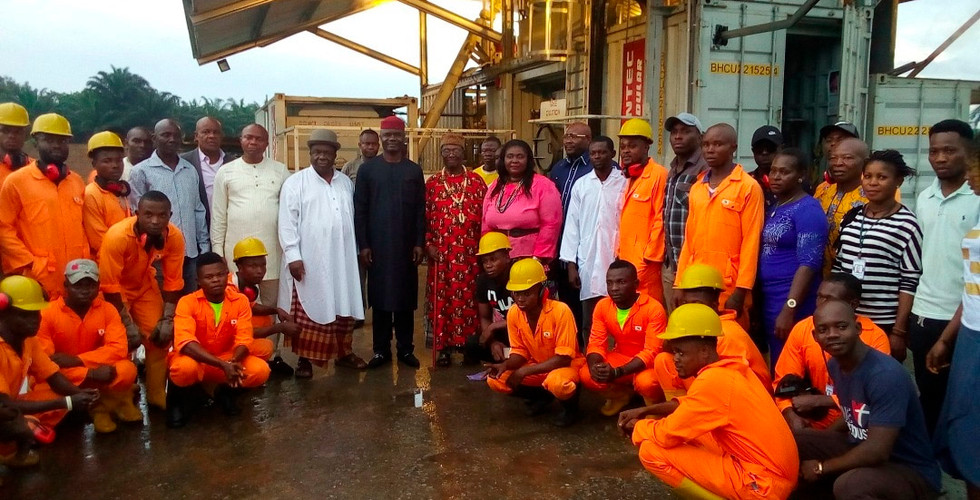In 2010, my mentor told me that he would soon retire from active duties, handover the running of his business to two of his children and relocate to the village.
As he didn’t want to be idle, we needed to set up something for him to do. In his village, agriculture is the main source of income and he had been planting Oil Palm trees since 1993. By 2010, he had 121 hectares of Oil Palm plantation. So, we decided to set up a palm oil processing mill plant and put in place a project management office (PMO), to ensure the success of this new venture.
Here is brief summary of the timeline and steps undertaken for this project:
Incorporated the company in 2012.
Prepared a business plan and financial projections.
Looked for a supplier for the equipment. Considering the NEPA situation in rural areas, it had to be equipment that didn’t need electricity to work.
Found an equipment manufacturer and invited them to visit the plantations.
Opened a bank account.
Started the Bank Loan process and received a bank loan of N220 million for the purchase of the equipment.
Conducted a soil test and environment impact assessment.
Started the drawings for office buildings and factory.
Obtained the necessary Government approvals.
By 2014, started construction of office buildings, factory, staff residence, borehole, weight bridge, platform etc.
Started manufacturing of the equipment - it would take nine months to build and we were fourth on their list. We budgeted two years for the equipment delivery at the factory.
Received the 1 ton per hour palm oil processing mill in August 2018 for installation.
Carried out a test run of the equipment in September 2018.
The projects faced many challenges, but the company started full operation in January 2019, with his daughter and son managing the factory.
Progress made in 2019 and 2020

Designed and constructed a new system of separation of nuts from kennels by changing the swim, scoop and wash method to the scoop and wash method.
Entered into agreements with various plantation owners to harvest Fresh Fruit Bunches (FFB) from their plantations. This has increased the company’s supply of FFB by 20,000 bunches a month.
Changed the marketing system by selling in tankers (bulk or wholesale) instead of selling in 25kg jerrycans (retail) thereby increasing revenue because bulk purchase selling price is higher.
Ensured the Free Fatty Acid (FFA) is maintained at below 2%.
Commissioned the electricity sub-station which reduced the quantity of fuel used which in turn reduced operational expense.
Ensured the weighbridge was in perfect order for weighing purposes.
Improved the harvesting system by using more harvesters (cutters, carriers and pickers). This ensured that no ripe bunch was left in a tree without being harvested and improved competition among the harvesters.
Empowered women by converting payments to cash. Usually, the pickers, who are always women, are paid for their services with FFB.
Stimulated the Loose Fruit market in three states – Abia, Imo and Akwa Ibom.
Encouraged the youth in the community to get involved in Palm Oil processing.

Finally, meet the factory workers who are members of the community.

We start the second quarter of the year with the global economy opening up as people are being vaccinated, which is very encouraging.
If you would like to discuss how we can help you set up your Project Management Office, please email the OVAC Group team at enquiries@ovacgroup.com
Want to discover more? Watch our videos!




















































Comments